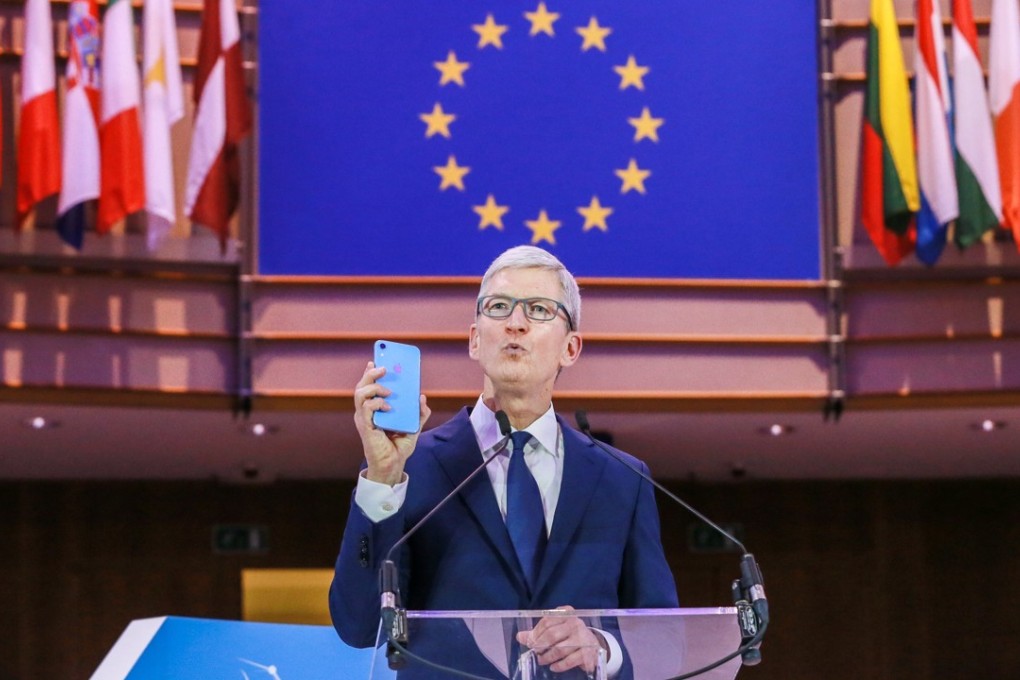Apple CEO says it’s time for the US to follow Europe’s lead in privacy laws
- Tim Cook says Apple supports comprehensive federal privacy laws in the US
- Apple’s chief has criticised Facebook and Google for harvesting their users’ data for advertising

Apple chief executive Tim Cook on Wednesday touted the importance of privacy and legislation to protect it, as the iPhone maker seeks to distance itself from Silicon Valley competitors under scrutiny for recent user data breaches.
The comments, given at a European Union privacy conference in Brussels, have come months after the bloc implemented strict new data protection rules and as Apple begins to mend a difficult relationship with the EU following a clash over €13 billion (US$14.9 billion) in allegedly unpaid taxes.
“It’s time for the rest of the world, including my home country, to follow your lead,” Cook said, referencing Europe’s General Data Protection Regulation. “We in Apple are in full support of comprehensive federal privacy laws in the US.”
Meanwhile, regulators and lawmakers in Europe and the US have trained their eyes on Facebook and Google following revelations of potential user privacy violations.
Facebook in September reported a cyberattack that affected 30 million people, with hackers stealing intimate user information, including search results, recent locations and hometowns, in many cases. After keeping it quiet for months, Google earlier this month said it found a “software glitch” in its Google+ social network in March that could have exposed the personal data of as many as half a million users.